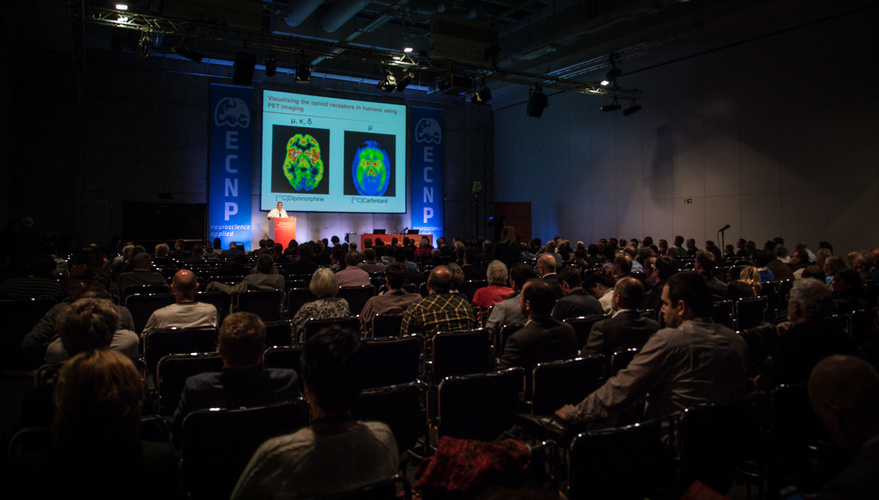
Choose a channel
Check out the different Progress in Mind content channels.

Progress in Mind

In this busy, well-attended evening session its chairman, Professor David Nutt (UK), explained how he had continuously worked hard for the topic of addiction to be addressed and was pleased to welcome delegates to this addiction-related symposium.
It has become increasingly clear that a greater understanding of the effects of alcohol on the human brain has led to important advances in the treatment of alcohol dependence. Indeed, as Professor Anne Lingford-Hughes (UK) explained, the treatment of alcohol-dependence is extremely worthwhilebecause the apparent damage caused by prolonged alcohol consumption is reversible once people abstain from drinking or reduce their alcohol intake.
Drugs of abuse such as alcohol influence the reward and motivational dopaminergic system. Understanding the changes that occur between different opioid receptors and dopamine in alcohol dependence has helped our understanding of the pathophysiology of the disease and is aiding drug development. For example, blocking the mu-opioid receptor will lead to reduced dopamine release, likely affecting the positive reinforcement of alcohol consumption through interference with the rewarding and euphoric effects of the drug. newer data point to a dysregulation of the kappa opioid system in alcohol dependence, which is thought to be the opposing system regulating the dopamine motivational system.
Dr Brendon Walker (USA) explained how the mu- and kappa-opioid receptors normally act in opposition to one another as part of an innate survival mechanism present in higher animals. He showed in validated animal models that the gradual change from alcohol non-dependence to dependence is primarily due to the gradual dysregulation of the kappa-opioid receptor and its associated dynorphins. The changes that occur to kappa-opioid receptors and dynorphins during chronic alcohol exposure have been shown to promote increased alcohol self -administration during withdrawal in animals. Furthermore, changes to kappa-opioid receptors and dynorphins have also been associated with impaired decision-making and impulse control in alcohol-dependent humans and in animal models. These findings suggest that both opioid peptide systems represent potential therapeutic targets in the management of alcohol dependence.
Is there a role for drugs in the management of alcohol dependence? Traditionally, abstinence has been the accepted route for reformed drinkers. However, as Professor Wim van den Brink (The Netherlands) pointed out there is a gap between those suffering from alcohol dependence and those seeking treatment. The main reason for this is that approximately half of those with a dependence on alcohol are not ready to stop drinking completely but would prefer to cut down their alcohol consumption and to regain some control. Clearly, alternatives to abstinence are needed. Successful clinical trials of an opioid modulator that significantly lowered alcohol consumption in those at risk of uncontrolled alcohol consumption without their needing to abstain from alcohol consumption altogether have been conducted.
In his concluding remarks, Dr Robert Swift (USA) pointed out that reducing alcohol consumption produces an exponential reduction in mortality risk in alcohol-dependent patients. Furthermore, he suggested that allowing patients to set their own treatment goals was also likely to result in an improvement in successful outcomes. After four weeks’ treatment with an opioid modulator, many patients who initially wanted only to reduce their alcohol intake changed their goal to abstinence of their own volition, suggesting that once alcohol consumption has been reduced, some patients feel better able to contribute to the management of treatment.